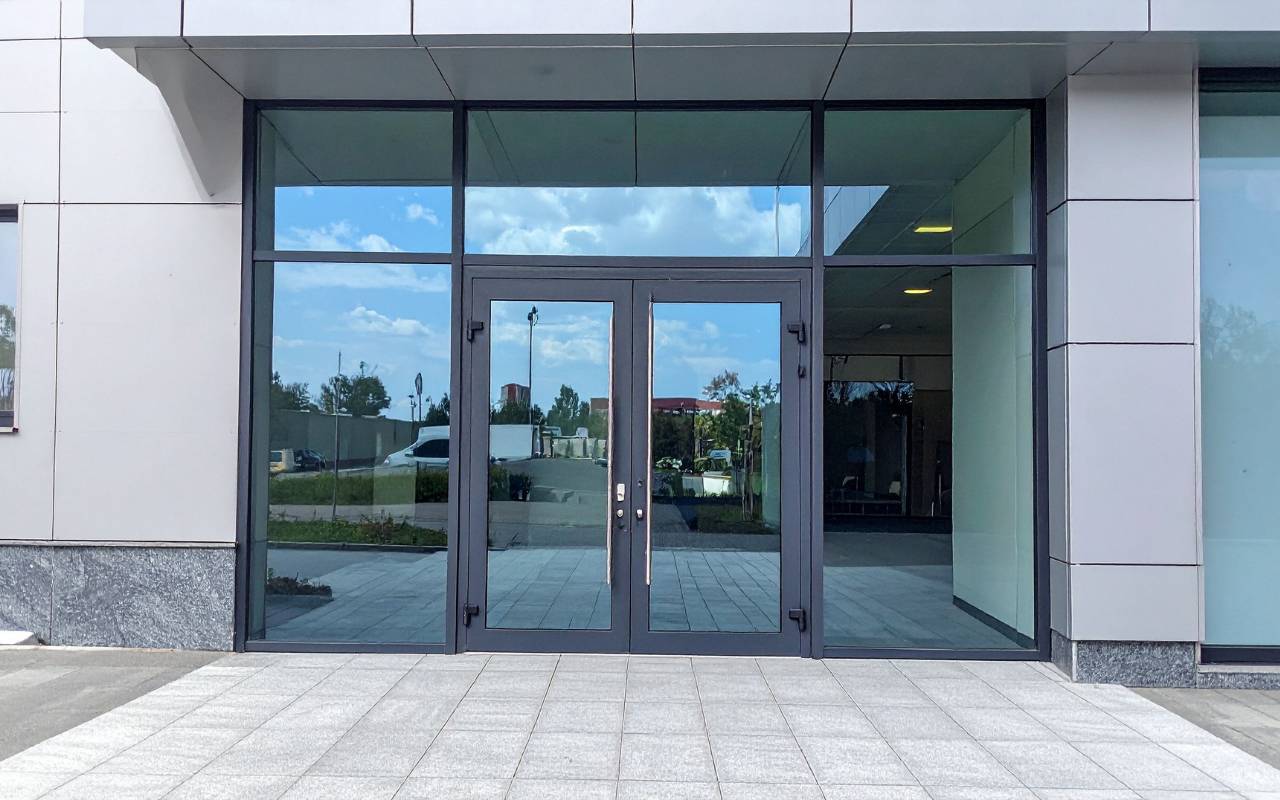As a business owner, first impressions are essential. Your commercial door hardware is often the first thing clients and customers touch. Over time, even strong materials wear out, which can affect both safety and appearance. Understanding when to replace commercial door hardware helps maintain your building’s security and functionality. Some issues are clear—like rust or cracks—while others, such as misaligned doors or tight locks, can be subtle. Recognizing these signs early prevents bigger problems and ensures your business remains safe and professional. Knowing typical hardware lifespans allows you to plan replacements before failure disrupts operations.
Importance of Maintaining Functional Door Hardware
Maintaining functional hardware is vital for safety and daily performance. Every time someone enters or exits, the hinges, locks, and handles must work smoothly. If they fail, you could face security risks or even injuries. Regular checks ensure your systems meet standards and avoid costly downtime. Keeping an eye on performance also helps identify when to replace commercial door hardware before failures occur.
Door hardware also plays a key role in emergencies. A door that sticks or a lock that jams can block escape routes. Regular inspections guarantee panic bars, closers, and exit devices work properly, keeping you compliant with safety codes. Routine maintenance helps you plan rather than react to failures. In the long term, this approach saves money and maintains trust.
For more guidance on maintaining doors, explore our page about replacing door handles and discover best practices for smooth operation.
Visible Signs of Wear and Tear
- Rust or corrosion on metal parts indicates moisture damage.
- Loose or squeaky hinges can lead to door misalignment.
- Wobbly handles or knobs often signal internal mechanism wear.
- Misaligned strike plates cause doors to fail when latching.
When you notice these problems, act quickly. A small issue can evolve into a costly breakdown. Timely detection tells you when to replace commercial door hardware effectively.
Subtle Indicators of Deterioration
Not all damage is visible. If opening or closing a door requires more force than usual, springs or hinges may be failing. Misalignment that occurs at specific times could result from temperature changes. Tracking such small shifts reveals deeper mechanical issues. Addressing them promptly ensures your doors last longer and function safely.
To understand hinge-related problems, visit our resource on commercial door hinge issues for practical troubleshooting tips.
Impact of Deteriorating Hardware on Security
- Weakened locks may allow unauthorized access.
- Faulty exit devices can endanger lives during emergencies.
- Old hardware might not meet insurance or safety requirements.
Recognizing when to replace commercial door hardware protects your property and the people inside. Regular maintenance ensures locks and security systems function at their best. Documenting inspections also helps you comply with safety and insurance standards.
Learn about essential components in our detailed guide to commercial door lock types to make informed upgrade decisions.
Aesthetics and Professional Image
Appearance matters. Worn hardware gives the wrong impression. Clean, well-maintained handles and locks suggest professionalism and care. Updating finishes and styles aligns your facility’s look with modern trends. Smooth operation and appealing designs enhance customer confidence and brand image. Knowing when to replace commercial door hardware also allows you to coordinate upgrades with renovations, keeping your property cohesive and welcoming.
Lifespan of Commercial Door Hardware Components
- Hinges: 5–10 years under frequent use.
- Locks: 7–15 years, depending on quality and traffic.
- Closers and electronic systems: 3–7 years before wear or software issues.
Environment and maintenance influence lifespan. Outdoor doors face more stress than interior ones. Keeping service records helps predict future needs. When you understand when to replace commercial door hardware, you can plan replacements efficiently and avoid unexpected interruptions.
To ensure your doors meet safety standards, review insights about what is fire door and understand regulatory requirements for commercial spaces.
Cost of Ignoring Hardware Replacement
Delaying replacement can cost more in the long run. Emergency repairs are expensive and often happen at inconvenient times. Preventive maintenance is more affordable and reliable. Neglect may also lead to security incidents, legal issues, or reputation damage. Addressing issues early ensures smooth business operations and satisfied clients.
Choosing the Right Replacement Hardware
Selecting the right hardware requires balancing quality, design, and compliance. High-traffic areas need durable materials like stainless steel or brass. Locks should meet safety codes and performance standards. Research manufacturer guidelines to verify warranties and certification levels. These steps help extend lifespan and reduce repair frequency.
DIY vs. Professional Installation Considerations
Simple replacements might be manageable in-house, but complex systems require expert installation. Professional technicians ensure compliance with safety and fire codes. They also help integrate modern access control technologies. Partnering with qualified experts ensures precision and minimizes risks. Consider professional support for secure, lasting installations.
Frequently Asked Questions
How can I tell if my commercial door hardware needs replacing?
Look for rust, misalignment, and resistance when operating the door. These are early signs of wear and signal when to replace commercial door hardware.
How often should I inspect my commercial door hardware?
Perform inspections every six months. Consistent checks help detect problems early and extend your hardware’s lifespan.
Can I replace only one part of the door hardware?
Yes, if the issue is isolated. However, matching parts ensures proper function and consistent design.
Is professional installation necessary for all replacements?
Not always, but complex systems benefit from expert installation to guarantee compliance and safety.
What benefits come from upgrading old door hardware?
New hardware enhances security, appearance, and efficiency. It also helps you meet modern building and safety standards.
Ensuring Secure and Inviting Entryways
Regular inspections and timely replacements prevent damage and maintain reliability. Understanding when to replace commercial door hardware lets you plan upgrades proactively. Well-functioning doors protect people, property, and reputation. For expert assistance, contact our team today to ensure your entryways stay safe and welcoming.

